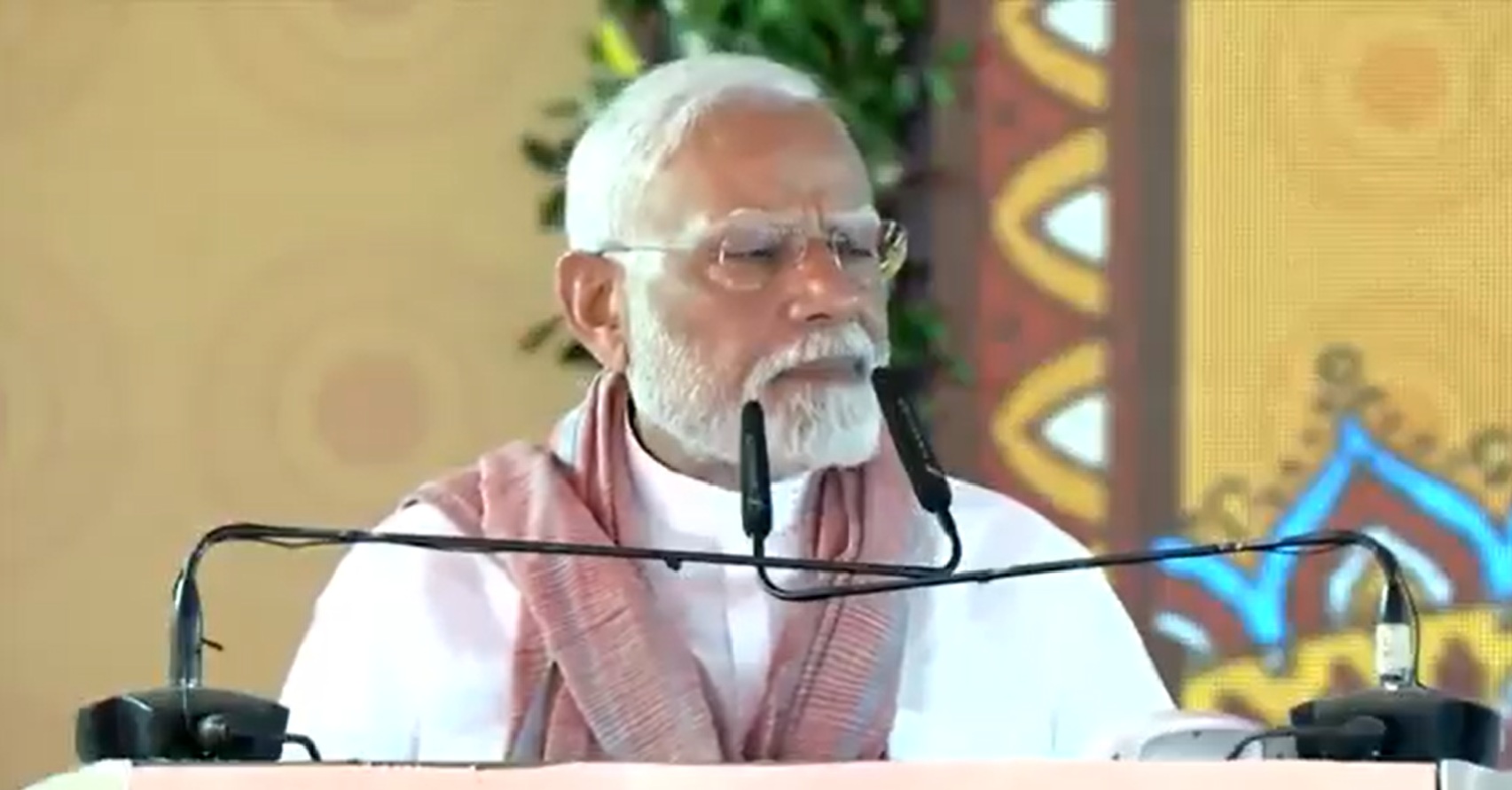Published Apr 27, 2025 | 10:00 AM ⚊ Updated Apr 27, 2025 | 10:36 AM

Earlier on the day on which the all-party meeting was convened, Prime Minister Narendra Modi was in poll-bound Bihar, where he told the world that the Pahalgam terrorists and those behind them will be identified, tracked, and punished. He, however, skipped the all-party meeting, where elected representatives raised questions on the security lapse that took 26 lives. (Narendra Modi/X)
Synopsis: Pre-checked, controlled interviews instead of taking questions at a press conference, bravado in public rally and monologues in his ‘Mann Ki Baat’ and parliament instead of answering questions in an all-party meeting, turning the spotlight away from him when his government is on the backfoot — Prime Minister Narendra Modi has to stop wriggling out of tough situations..
India’s three-time prime minister, Narendra Modi, simply doesn’t like answering tough questions. For a man who has postured himself as “Hindu Hriday Samrat”, Prime Minister Modi chose to skip a crucial all-party meeting convened to discuss the targeted killing of 25 Hindu tourists, and a Muslim man, in Kashmir’s Pahalgam.
Ironically, the prime minister was in poll-bound Bihar earlier in the day — 24 April — to inaugurate projects and share the stage with Chief Minister Nitish Kumar. He addressed a rally in Bihar where he said terrorists and those who backed them for the massacre at Pahalgam will be identified, tracked, and punished in a passionate promise to the people.
All his passion, however, didn’t turn into his presence at the meeting where leaders of political parties had questions for him, and his government had to answer.
The prime minister’s absence from the meeting is not surprising. He has a history of ducking tough questions and removing himself from uncomfortable situations — unlike his predecessors, who faced grilling questions and upheld accountability.
In his 131 months as the prime minister, Modi has not once addressed a press conference or taken impromptu questions. His multiple interviews are carefully controlled, with pre-approved questions, selected topics of discussions, edited footage from his team of media managers, conducted by “fanboy/fangirl” anchors. In short, settings that should put journalism to shame.
“Success is mine, failure is everyone else’s” seems to be the standard operating procedure of Prime Minister Modi ever since he took office. This narrative has also helped the BJP maintain the illusion of “Teflon coating” — an idea that no criticism of Modi will ever stick to him or impact his popularity. Such is the penchant to keep up appearances of the ‘teflon coating’ that every time the NDA government is on the back foot, the spotlight is shifted from Modi to somebody else — other ministers, agencies, opposition leaders, even deceased prime ministers of the past.
When Modi addressed the nation to announce demonetisation in November 2016, he positioned himself as the face of economic reforms to end corruption, terrorism, black money in the country. Today, as India faces an economic crisis, Finance Minister Nirmala Sitharaman is made the face of poor policies, tax burden on citizens. She faces criticisms and mockery over the nightmarish GST regime and overall reduced spending capacity of Indians.
Modi’s “Naya Kashmir” push helped the BJP and the Union government play up the narrative of “normalcy” in Kashmir. Since 2014, when the Modi-led BJP came to power, Jammu and Kashmir has witnessed several horrific terror attacks, including the 2016 Pathankot and Uri attacks, the 2017 Amarnath Yatris’ massacre, the 2019 Pulwama attack, the 2024 Raesi attack, and now on 22 April 2025, the Pahalgam attack
The misrepresentation of ‘normalcy’, despite these gory attacks, has encouraged tourists from across the country to visit Kashmir. Tourists in Pahalgam’s Baisaran recall how not a single security force personnel was present at the meadows. The absence of security personnel from popular tourist spots in Kashmir was also as per instructions of the Union government, according to the briefing at the all-party meeting.
This revelation begs the question: Did the Modi government buy into its own misrepresentation of ‘normalcy’ in Kashmir, or did it go to reckless lengths to give the impression of ‘normalcy’?
He may have celebrated the “normalcy” idea, but Modi was absent when elected representatives of India raised questions on the Pahalgam attack at Thursday’s meeting.
Even as ethnic conflict burnt Manipur for months and daughters of India were paraded naked, the prime minister chose not to visit the strife-torn state. Modi, who is hailed by his supporters on and off TV screens, for travelling to poll campaigns in multiple states in a single day, didn’t find time to visit Manipur once, despite a NDA government in place in the state. He was simply absent from Manipur.
If the prime minister is averse to tough questions, his massive following and supporters are angry at any question posed to him or his government. A journalist of Dainik Jagran learnt that lesson the hard way. His questions on whether a lapse in security by the Union government led to the Pahalgam terror attack prompted a mob of BJP workers to assault him, landing the journalist in the hospital.
It didn’t matter that only hours later, the Modi government admitted that there was a lapse. In tune with how things have been playing out for years, it wasn’t the prime minister who admitted the lapse, but his minister, Kiren Rijiju.
Pre-set, controlled interviews instead of taking questions at a press conference, bravado in public rally and monologues in his ‘Mann Ki Baat’ and in Parliament instead of answering questions in an all party meeting, turning the spotlight away from him when his government is on the back foot — Prime Minister Narendra Modi has to stop wriggling out of tough situations.
(Views expressed are personal. Edited by Majnu Babu.)

